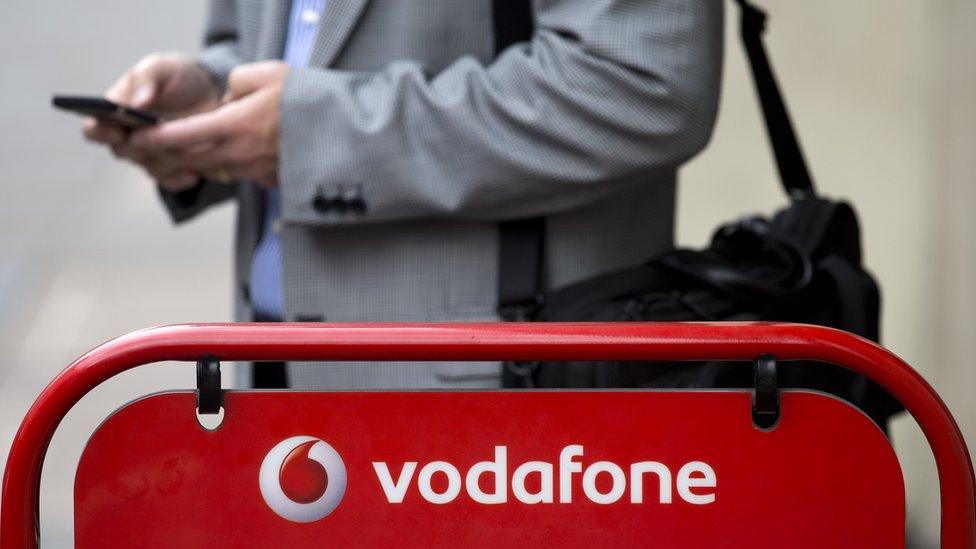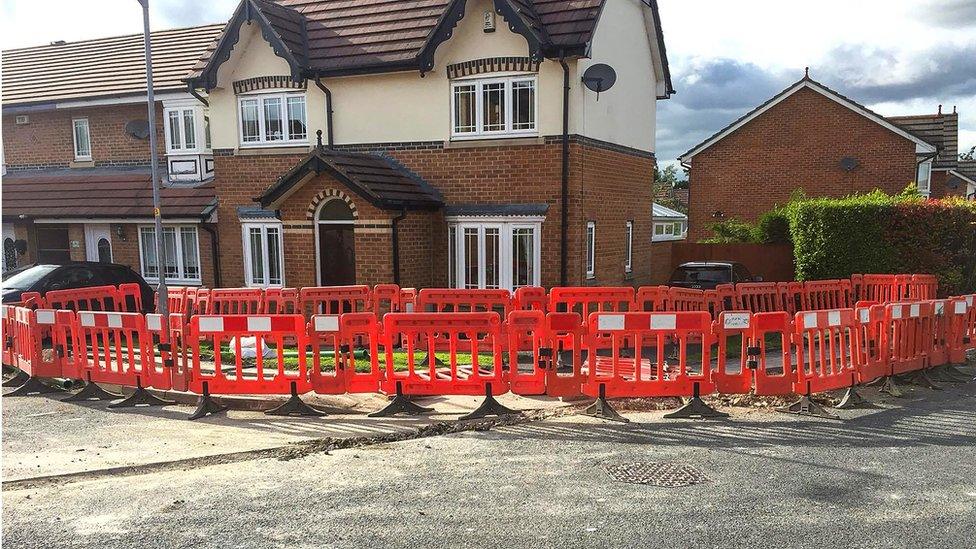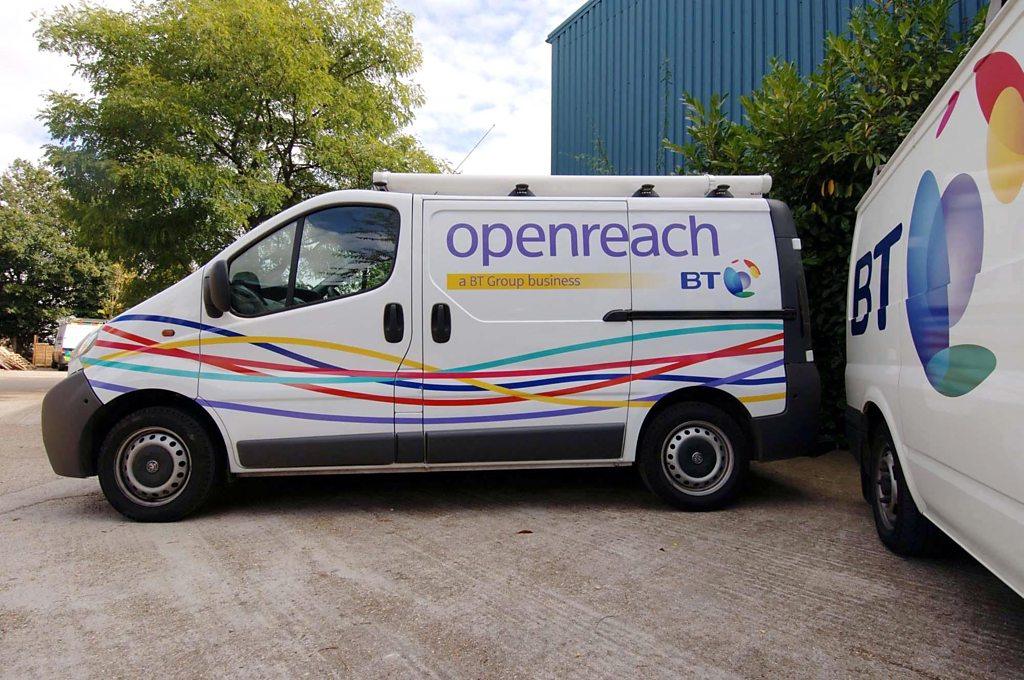Vodafone 'removes' broadband line rental charges
- Published

Mobile-phone giant Vodafone claims it is scrapping line rental charges for new and upgrading home broadband customers in the UK.
The move means customers will not be billed the current £18 ($23) monthly charge but only if they commit to an 18-month contract.
They will still get a landline connection and phone number, the firm said. Prices will start at £22 a month.
However, some experts said the charge is being merged, rather than abolished.
"To be clear, Vodafone isn't really abolishing line rental charges, it's simply combining the charge into its fibre pricing," said broadband expert Ewan Taylor-Gibson from uSwitch.
"This is because broadband providers are under pressure from the Advertising Standards Authority (ASA) to change advertised pricing so customers see a cost per month that includes line rental, so Vodafone is stealing a march on its rivals."
Analyst Paolo Pescatore from CCS Insight said it was a bold move, but that Vodafone now needs to think more about its content provision.
"Vodafone's lack of content still represents a huge headache for the company as all of its rivals are bundling entertainment, movies and sports with their broadband deals," he said.
"We are moving into a key period when all multiplay providers are trying to entice subscribers with attractive promotions ahead of the new Premier League football season.
"We are expecting a busy second half of the year with Sky's entry into mobile, Vodafone's debut in TV and Virgin Media's new set-top box. "


Analysis: Rory Cellan-Jones, BBC technology correspondent
Shop around for a new broadband deal, and you can easily miss the fact that there's something nasty hidden beneath an attractive offer - the chunky monthly line rental fee.
It's something that has been frowned upon as misleading by regulators such as the Advertising Standards Authority - and many of the broadband suppliers have said they want to see it go.
Now Vodafone has made the first move with offers that will see line rental charges abolished - or at least absorbed into one price package - for new and upgrading fibre broadband customers.
As a relatively small player that has struggled to make much headway with residential customers, it makes sense for the mobile operator to go first and garner the best PR. It now seems inevitable that the others will follow - and that should help consumers by making the complex deals a little easier to understand.
But the UK's broadband market is already pretty competitive compared with many across Europe - it is unlikely that consumers will find they are paying much less overall.
- Published29 July 2016

- Published26 July 2016

- Published26 July 2016
